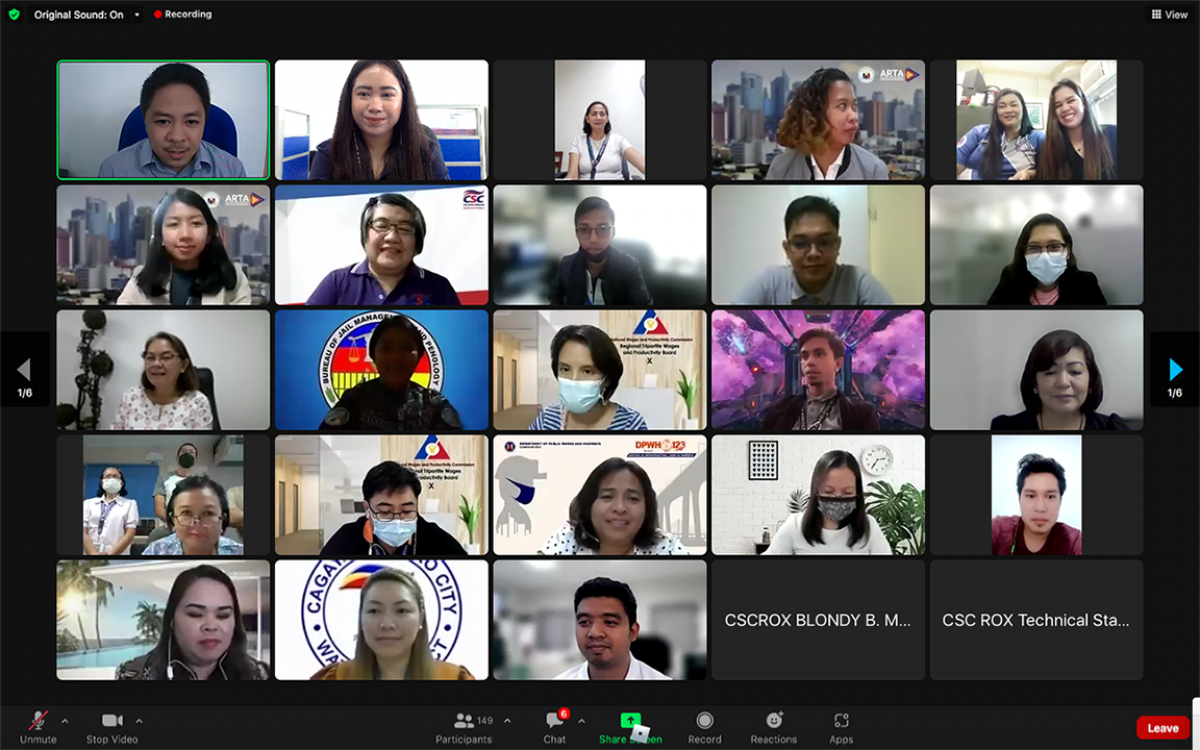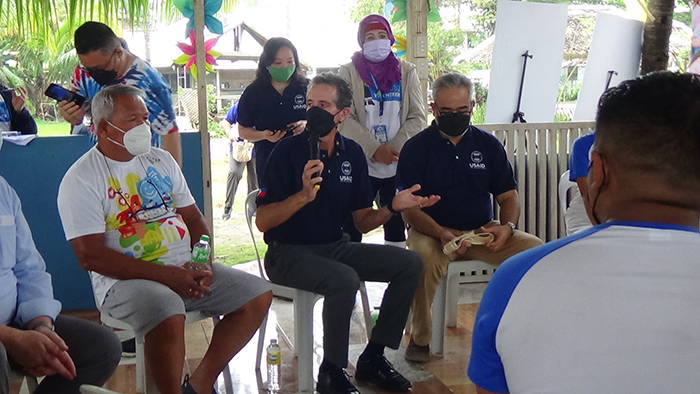CAGAYAN DE ORO CITY (PIA)--With an aim to disseminate important information regarding the quality delivery of government services, the Anti-Red Tape Authority and Civil Service Commission virtually conducted an Orientation on the Citizen’s Charter and Whole of the Government Reengineering Manual last June 17.
Over 140 representatives of different government agencies in the region participated in the virtual activity. The discussion underscored the Republic Act No. 11032 or the Ease of Doing Business and Efficient Government Service Delivery.
ARTA Deputy Director-General and Officer-in-Charge Ernesto V. Perez briefed everyone on the essence of the Act and how important the orientation is.
“I would like to highlight that as public servants, we are guided by the law and by the regulations that govern our respective offices… When we take our oath as public servants, we commit to obey all the laws and regulations,” Perez said.
Compliance Monitoring and Evaluation Office B Division Chief Kristine Joy Fajardo discussed on Citizen’s Charter. Citing RA 11032, she said that Citizen’s Charter is “an official document, a service standard, or a pledge, that communicates, in simple terms, information on the services provided.” The charter contains all services of a government agency, including its external and internal services.
Moreover, she said the posting of the Citizen’s Charter shall apply to all government agencies that provide services constituting business-related and non-business transactions.
On the other hand, the Government Process Reengineering Manual aims to provide a step-by-step procedure for processes that can support government agencies in streamlining their processes and improving their systems through an integrated whole-of-government approach for the delivery of efficient services to their clients.
Project Development Officer Danica Lulab oriented the participants on the manual and discussed important features.
The Anti-Red Tape Authority through RA No. 11032 also established on March 7, 2020 the 3-7-20 Day processing time as a deadline for government agencies to act upon their backlogs. Three days for simple transactions, 7 days for complex transactions, and 20 days for highly technical transactions.
Section 4 of the Republic Act stated that a government agency or office is allowed to observe a processing time longer than 3-7-20 working days. This is allowed given that there is a special law mandating a processing time for the delivery of their specific service. Other than this, suspension of prescribed processing times is also allowed when the cause of delay is due to natural, manmade disasters.
Extension regarding prescribed processing time under RA No. 11032 is allowed only once and there are certain requirements that have to meet such as notifying the applicant in writing with the reason for the extension and final date of release.
Further, the notification must also be sent prior to the lapse of the processing time and such notice must be signed by the applicant or requesting party. (IJBD/PIA-10)







